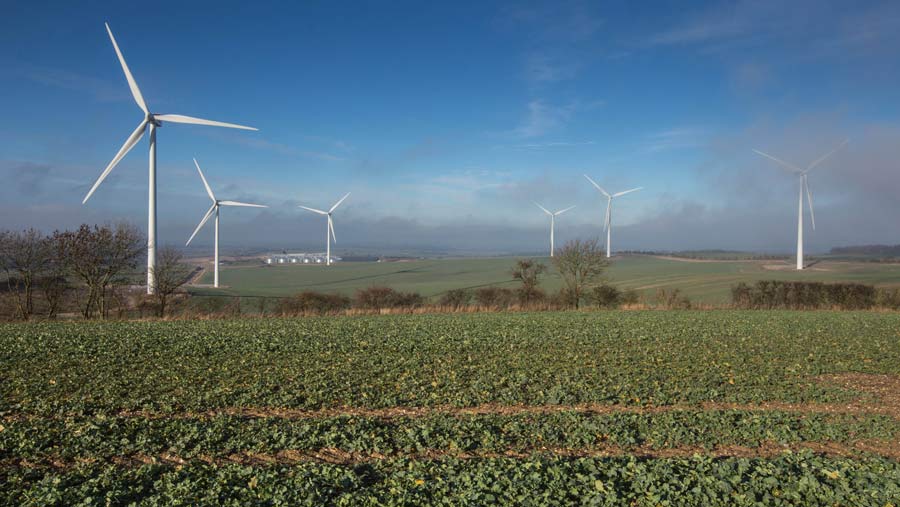Consult farmers on electricity infrastructure projects, says NFU
 © Tim Scrivener
© Tim Scrivener Farm businesses should be fully consulted and fairly compensated for the impact of major electricity infrastructure projects on farmland, according to the NFU.
Large national infrastructure projects connecting offshore power and solar sites with the main UK grid are expected to have an increased impact on farm businesses, due to the installation of overhead power lines and underground cables.
See also: Why England’s onshore wind planning rules need reform
Electricity projects have been accelerated in order to meet the government’s commitment for a fully decarbonised electricity system by 2035 and a net-zero target of 2050.
The NFU has called on government to minimise disruption for farmers and focus on the offshore network where possible.
It has also called on the National Grid to consult with farmers on the locations for pylons and underground cables.
NFU vice-president David Exwood said: “British farm businesses have a big part to play in helping to deliver renewable electricity, something which is a key pillar of our net-zero ambition.
“However, as we know all too well, national infrastructure projects can cause huge disruption to day-to-day farming operations and last for many years.
“For example, pylons and overhead cables can be very dangerous in the vicinity of working agricultural machinery due to concerns over height.”
Winser report
Electricity Networks commissioner Nick Winser was appointed as an independent adviser to the government to offer recommendations on how best to implement and accelerate the electricity national infrastructure projects.
His report recommended to government that compensation for wayleaves and purchase of land – voluntary and compulsory – should be set at a national level, either through guidance or a statutory code of compensation.
“The first option of issuing guidance is unlikely to require any legislative changes.
“There would be a cost of setting up and agreeing guidance, but this is likely to be offset through shorter negotiation times and potentially lower land purchase and wayleave costs,” said the report.
Department for Energy Security and Net Zero secretary of state Grant Shapps wrote to Nick Winser in response to the report welcoming the recommendations.
Mr Shapps said: “While good progress has been made, we recognise that further action is needed. We will build on the momentum generated from this report and target specific priority areas for immediate focus.
“We recognise the fundamental change needed and have committed to publishing an Action Plan this year in response to your recommendations.”
